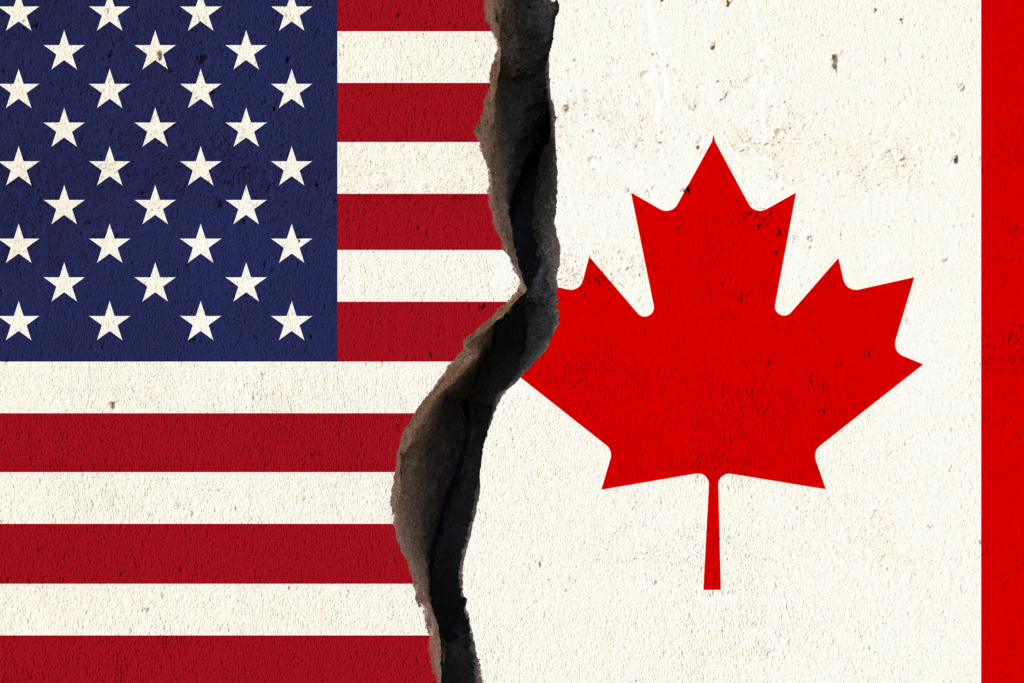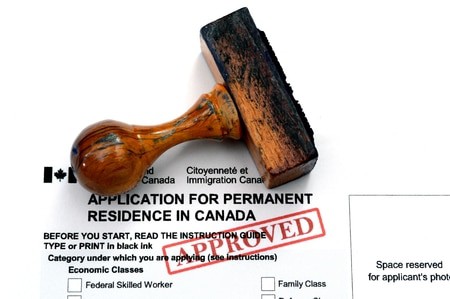NIMBY: Selfish parochialism or rational self-interest?
The term “NIMBY” (Not In My Back Yard) refers to the opposition by local residents to any new infrastructure project, such as a housing development, group home, or incinerator proposed for their neighbourhood. As Robert Lake writes in a 1993 article, Rethinking NIMBY, NIMBY is generally seen as “selfish parochialism” that “generates locational conflict that prevents attainment of societal goals” and “is blamed for virtually all of our failures to solve pressing social problems.”
But, argues Lake, rather than being disparaged as a selfish knee-jerk reaction, NIMBY should be seen in the context of an inherent conflict between capital and community. Capital seeks investment in infrastructure which requires land development while communities have an interest in their own neighbourhoods, which are rarely enhanced by new developments. NIMBYism as “an expression of people’s needs and fears” is “no more and no less rational and legitimate than the market mechanism and the profitability of capital,” he says.
With the rapid population growth driven by the radical increase in immigration levels of recent years, much current NIMBYism is directed at the densification of neighbourhoods brought about by zoning changes, infill, and development of nearby woodlots. The desires of community residents, who may have moved to an area specifically for its low density, conflict with those of developers, speculators, mortgage providers, and certain business interests who profit from population growth and concomitant densification.
Coercion works, but the optics are bad
The provinces must contend with the rapid population growth resulting from the federal government’s immigration policy, and they in turn force municipalities to come up with plans to accommodate that growth. For the most part, municipalities meekly accept this growth even if it is clearly not what their residents want, as shown in a survey of Orillia, Ontario, residents contained in that city’s 2019-20 Strategic Plan. A 2023 survey commissioned by Canadians for a Sustainable Society revealed that Orillia residents are not alone: Canadians are not asking for the rapid development that growth is imposing on their communities, but for safety, equality, and access to nature.
The unprecedented level of immigration that the Trudeau government has imposed on Canada, which brought in over one million newcomers in both 2022 and 2023, has blown even growth-compliant municipal planning out of the water. In November 2023, Langley, BC, mayor Eric Woodward lamented that the provincial government’s housing bill “undermines 10 years of urban planning.”
To contend with potential municipal resistance to imposed growth targets, some provinces, most notably Ontario where about half of all newcomers settle, have implemented harsh measures that empower the provincial government to sideline municipal zoning and land protection regulations. Among Premier Doug Ford’s power-grabbing and growth-promoting bills are Bill 257 (which gives the Minister of Municipal Affairs nearly unchecked power to fast-track development, including on protected land), Bill 23 (which reduces or eliminates developers’ fees, leaving municipal taxpayers to foot the bill for the infrastructure needed by new developments), and Bill 39 (which weakens protection of agricultural land and gives big city mayors the power to amend bylaws with the support of only one-third of city council members). (I have previously discussed Ford’s heavy-handed legislation here, here, and here.)
Taking a leaf from Ford’s book, BC premier David Eby imposed new zoning regulations on any municipality of over 5000 people. His Bill 44 allows fourplexes or six-plexes on all lots previously zoned as single-family or duplex and prohibits municipalities from requiring off-street parking for multi-family housing. As Riley Donovan notes, such a draconian bill overlooks some totally foreseeable consequences, such as how municipalities will provide the infrastructure to accommodate the potential surge in growth, and undermines years of municipal planning. Langley’s Mayor Woodward is not alone in expressing dismay. Donovan reports that he spoke with Mayor Sid Tobias of View Royal, a town of under 12,000 in Greater Victoria, who said that neither he nor the town’s council and staff were consulted about the provincial housing legislation but were given “technical briefings” with little time for questions or input.
While coercion works, it has its drawbacks. Aside from poor optics, it can result in a strong backlash, such as the one that forced Ontario’s Doug Ford to drop his plans for development on the Golden Horseshoe Greenbelt of the Greater Toronto Area (GTA).
Enter YIMBY to fight NIMBY

As the negative impacts of growth on the quality of life of ordinary working people become more and more evident, psychological persuasion is being implemented to get people to accept the densification that is against their own interests. YIMBY, or Yes in My Back Yard, is a direct dialectical counterattack to NIMBY. YIMBY promotes as a virtue not just accepting but actively welcoming the densification of one’s neighbourhood for the greater good. It works hand in glove with long-standing government propaganda that promotes mass immigration as essential for Canada to thrive. The profiteers of mass immigration and population growth are unsurprisingly big promoters of YIMBY.
According to Wikipedia (accessed 27 February 2024), YIMBY was first used in 1993 in a “Commentary” in the Journal of the American Planning Association (Vol. 59, Issue 1) that introduced a set of three articles, the first being the one by Robert Lake cited above. The Commentary’s heading was “Planners’ Alchemy Transforming NIMBY to YIMBY.” Alchemy, the medieval forerunner of chemistry, is the quest to transmute base metals of low value into precious metals of high value, most notably lead into gold. For developers and others who profit from growth, this “Planners’ Alchemy” would transmute the “lead” of NIMBY resistance, which entails delays, procedural hassles and additional costs, into the “gold” of YIMBY, under which neighbourhoods not only accept but even welcome development for what they have been led to believe is the greater good.
But of course it’s not really for the greater good. Because from a community perspective, YIMBY is the acquiescence to the “reverse alchemy” of transmuting lower-density, more livable neighbourhoods to higher-density neighbourhoods, often with more noise and pollution and less access to nature. For this, they get none of the profits of development, but often bear most of the costs in the form of higher municipal taxes to pay for the additional infrastructure and services needed, such as garbage collection, sidewalks, water mains, sewers and storm drains.
Which raises the question: is it legitimate to call YIMBY a psyop?
YIMBY: a psyop against opposition to growth
Psyop is short for psychological operation which dictionary.com says is another term for psychological warfare, defined as: “the use of propaganda, threats, and other psychological techniques to mislead, intimidate, demoralize, or otherwise influence the thinking or behaviour of an opponent.”
Can this definition be applied to YIMBY? Let’s check how well it fits.
Propaganda, threats, and psychological techniques
Several organizations in Canada promote YIMBY, which can be considered a movement. More Neighbours Toronto encourages people to use its online tool to ask their member of provincial parliament to end exclusionary zoning. More Neighbours Toronto is part of a larger organization called More Homes Canada with at least 12 groups (including in Victoria, Vancouver, Calgary, Edmonton, Winnipeg, Toronto, Ottawa, Montreal and Halifax) that push local residents to engage in political activism to enable growth, such as demanding zoning changes that allow for greater density and taller buildings. The Alliance for a Liveable Ontario “welcomes a growing population” that it believes can be accommodated through all the usual methods that have so far failed spectacularly to stop sprawl.
Even parties and organizations whose alleged purpose is environmental protection have leapt onto the growth-embracing bandwagon. Mike Schreiner, an MPP and leader of the allegedly Green Party of Ontario, promotes YIMBY using buzzwords like “legalizing housing” (see below). In 2023, Schreiner introduced two private member’s bills (Bill 44 and Bill 45) that would densify neighbourhoods and give residents no opportunity to appeal. The alleged environmental organization Environmental Defence asks people to “fight sprawl by supporting the approval of more homes in your neighbourhood” and “demand that your municipal government end exclusionary zoning.”
While it would be a stretch to say that YIMBY uses threats, it clearly uses propaganda and psychological techniques to advance the interests of growth-promoters. The attempts to shame growth-resisters, as discussed below, also make use of psychology.
Mislead
Mislead means to guide wrongly or tend to deceive. It can be argued that the very term “YIMBY” is designed to deceive. It presents something (densification and development) that is in fact detrimental to the intended target (people who live in neighbourhoods about to be densified) as a socially good thing, when in fact the benefits (profit) almost entirely go to others (developers, speculators, mortgage providers, some businesses). And it entirely avoids challenging the driver of unwanted growth: extraordinarily high levels of immigration set by the federal government.
Terminology can also be used to mislead. In October 2023, housing minister (and former immigration minister) Sean Fraser used the absurd term “legalize housing” while in Kelowna, BC. Housing is obviously legal, but in pro-growth Newspeak, “legalize housing” is a nice way of saying that municipal zoning regulations can be dispensed with, with no avenue to appeal, to allow the densification driven by the federal government’s reckless immigration policies.
Intimidate (or maybe just shaming as a psychological tool)
The YIMBY movement does not (as far as I know) engage in outright intimidation, but shaming is definitely an arrow in its quiver, as shown in the pro-YIMBY meme below:

The long-standing (but recently broken) taboo on challenging high immigration levels was based on an implicit assumption that those challenging immigration policies are racist and xenophobic. One could say that this is a form of psychological intimidation. In August, 2023, even as he declared his determination not to lower immigration targets, newly appointed immigration minister Marc Miller tried to shame Canadians who opposed his government’s policy:
“In every wave of migration that Canada has had, there has been a segment of folks that have blamed immigrants for taking houses, taking jobs, you name it. These are the people that don’t necessarily have the best interest of immigrants at heart and we have to call that out when we see it and we won’t hesitate to do that.”
The Century Initiative is a lobby group founded in 2011 whose aim is to increase Canada’s population to 100 million by 2100 and whose interests clearly align with those who profit from growth. On its website, pertaining to immigration, it asks the question, “What side of history will Canada be on?” The statement immediately below that question reads, “Globally, we are seeing a rise in nationalism, populism and anti-immigrant sentiment,” obliquely shaming those who might oppose its objectives as nationalists, populists, and xenophobes.
Demoralize
It is surely demoralizing to lose the right to have a say in what happens to one’s neighbourhood, and to lose the right to appeal a decision. Ontario’s Bill 23 greatly limits the ability of residents to appeal densification decisions. The private member’s bills introduced by Ontario Green Party leader Mike Shreiner do the same. In April 2023, BC’s Housing Minister Ravi Kahlon let it be known that his province’s housing plan would aim to make short work of NIMBY refuseniks.
Perhaps we should ask BC mayors Eric Woodward and Sid Tobias just how demoralizing it is for municipalities to spend years developing plans, based on anticipated growth, only to see those plans trashed because the massive acceleration of growth had made them irrelevant?
YIMBY promotes the crushing of the rights of residents to have a say in the development of their neighbourhoods. All for the greater good, of course.
Otherwise influence
The YIMBY movement presents growth as inevitable. It does not question the policies that drive it. To prevent sprawl and protect farmland, it urges residents to accept any amount of growth they never asked for. They should do their part to save the environment by allowing whatever greenspace may be left in their own neighbourhoods to be built up.
In my estimation, YIMBY is a cultural psyop.
Recognizing YIMBY for the con that it is
At current rates of immigration, Canada will meet and even exceed the Century Initiative’s target of 100 million by 2100. This is an arbitrary target that has no connection to the well-being of Canadians. In fact, two National Bank of Canada economists write that Canada’s out-of-control immigration levels have put it into a “population trap,” where population growth exceeds GDP growth, essentially impoverishing Canadians. In addition to creating a housing crisis, this rampant growth is resulting in increased pressure on social services, especially healthcare.
Although the government has yet to provide valid reasons for driving immigration to extreme levels, opposition parties represented in parliament have refrained from questioning that policy; they will only criticize the government’s inability to build housing at a rate that has never been met before and is probably impossible to achieve.
The YIMBY movement serves the profiteers of growth by promoting the lie that continuous growth is sustainable and can be contained within certain boundaries if your community can be densified and your neighbourhood green spaces filled in. It is NIMBYs who are the problem, not growth.
The acquiescence of environmental groups to this fiction is disturbing, but is probably a reflection that many have to some extent been transmuted into social justice organizations. The same goes for political parties pretending to be green. With so many people needing housing, what gives you a right to a neighbourhood with character and greenspace? Regardless of their reasoning, environmental groups that promote YIMBY have rendered themselves into useful tools for the profiteers of growth.
No one should hold delusions that YIMBY is about environmental protection – it’s all about enabling growth. When push comes to shove and growth can no longer be contained with densification and infill, protected areas will be put on the chopping block. Premier Doug Ford has demonstrated how little environmental protection laws mean in the face of relentless growth.
Madeline Weld, Ph.D.
President, Population Institute Canada
Tel: (613) 833-3668
Email: mail@populationinstitutecanada.ca
www.populationinstitutecanada.ca
Editor’s note: This article was originally published on Population Institute Canada’s website (populationinstitutecanada.ca) on March 18th, 2024. It is republished on Dominion Review with permission of the author.
All content on this website is copyrighted, and cannot be republished or reproduced without permission.
Share this article!




The truth does not fear investigation.
You can help support Dominion Review!
Dominion Review is entirely funded by readers. I am proud to publish hard-hitting columns and in-depth journalism with no paywall, no government grants, and no deference to political correctness and prevailing orthodoxies. If you appreciate this publication and want to help it grow and provide novel and dissenting perspectives to more Canadians, consider subscribing on Patreon for $5/month.
- Riley Donovan, editor